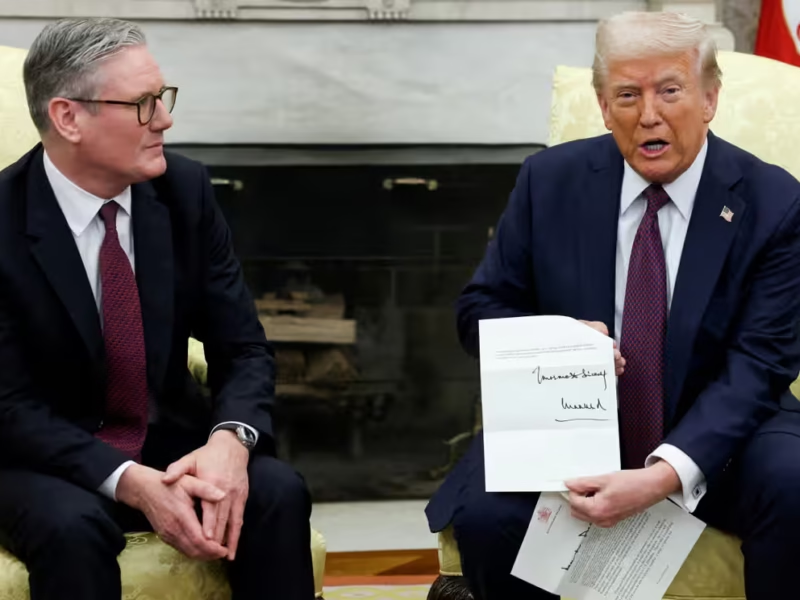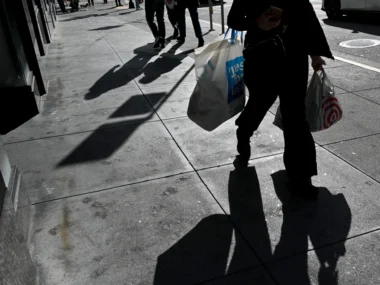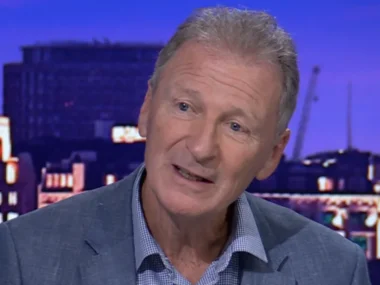Sources reveal that US officials have divided negotiations into three phases, prioritizing South Korea.
Donald Trump has downgraded the UK trade deal to a lower priority, sources informed the Guardian, which is delaying the UK’s efforts to meet its mid-May deadline.
US officials have opted to divide their negotiations with over a dozen countries into three phases, placing the UK in either the second or third phase, according to insiders.
For British negotiators, a trade agreement with the US is seen as the most significant goal, following recent progress on separate deals with the EU and India. However, UK officials are concerned that a potential EU deal, which they aim to finalize at the 19 May summit, could complicate negotiations with the Trump administration, which often criticizes European trade policies.
An insider revealed that the US is now negotiating trade deals in three phases, with the UK not included in the first phase, leaving open the possibility of being involved in phases two or three. A business department spokesperson stated, “The US remains a key ally, and we continue negotiations on an economic prosperity deal that strengthens our trade ties.”
Despite not receiving a response from the White House, UK officials initially proposed a draft agreement to the US weeks ago, hoping for an exemption from President Trump’s tariff announcement. When this was unsuccessful, they shifted focus to the self-imposed 19 May deadline.
Sources in Whitehall report that the talks have been unpredictable since the tariff announcement. US negotiators are now reportedly demanding that the UK reduce its food quality standards to allow American beef and chicken imports, a demand long opposed by the Labour government.
The UK’s draft deal includes reducing its digital services tax, which targets major US tech firms, in exchange for lower tariffs on steel, aluminum, and cars. Chancellor Rachel Reeves has also considered reducing tariffs on US cars as an additional concession.
Recently, the Trump administration decided to divide negotiations with 17 countries into three groups, each given a week to negotiate. The US has set an 8 July deadline for concluding talks, several weeks after the UK’s target.
Sources indicate that UK officials have been told the immediate focus will be on negotiations with Asian countries, with South Korea prioritized.
US Treasury Secretary Scott Bessent noted that Asian countries such as India, South Korea, and Japan have been the most forthcoming in trade negotiations. He also criticized European nations for imposing digital services taxes on US companies, calling for their removal. The UK government has offered to reduce the tax but not eliminate it.
Despite the new approach, British negotiators remain optimistic they can continue talks, even in an informal capacity, in the coming weeks. One source described US tactics as “makeshift and unpredictable,” while another confirmed that contact had persisted despite the phased negotiations.
The UK has made better progress with India and the EU. UK officials held important talks with Indian counterparts on Tuesday, following statements by India’s trade minister, Piyush Goyal, that 25 of the 26 deal aspects had been agreed. Although UK officials hoped to finalize the deal on Tuesday, discussions faltered over national insurance contributions, a long-standing issue.
At least one more round of talks is expected before finalizing the deal, with discussions underway about a potential visit by Keir Starmer to India post-agreement.
Meanwhile, UK ministers, including Nick Thomas-Symonds and Jonathan Reynolds, met with EU trade commissioner Maroš Šefčovič, signaling progress toward a UK-EU deal. Šefčovič later tweeted that it had been a “productive exchange” on securing balanced trade relationships amidst changing global dynamics.
The Guardian reported last week that Brussels was prepared to make significant concessions on a youth mobility scheme to reach a deal, such as limiting work visas to 12 months and restricting the sectors EU citizens can work in. However, experts argue that aligning UK agricultural standards with European ones would conflict with US demands to align UK regulations with US standards.
Anand Menon of UK in a Changing Europe stated, “If the US demands that we lift regulations restricting their goods’ market access, it would clash with the requirements for a deal with the EU.”











